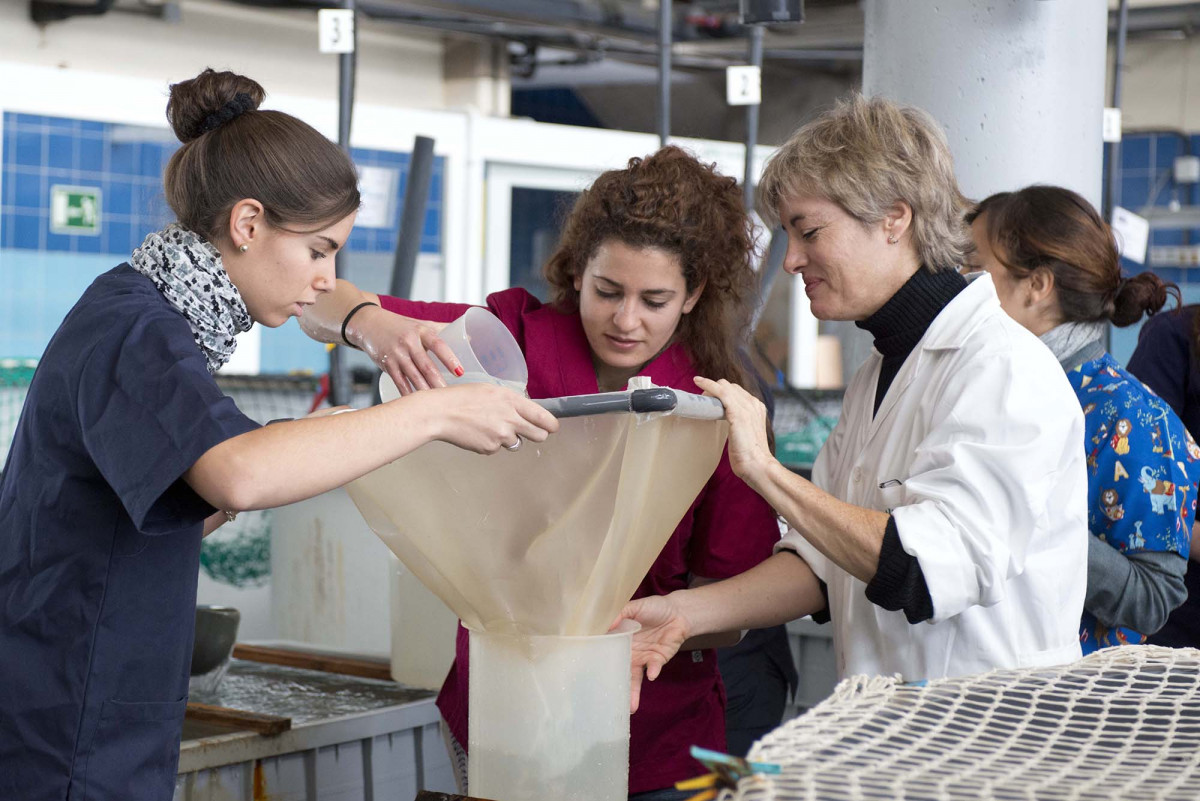The production of new sources of long-chain polyunsaturated Omega-3s, the well-known EPA and DHA, will help to make population growth on Earth, a planet with increasingly depleted resources, sustainable. This was the theme of the exhibition last Thursday, 14 June, of the ECOAQUA Aquaculture Research Group at the VII Congress of the Iberian Society of Ichthyology (SIBIC 2018), in the Portuguese city of Faro, where Marisol Izquierdo, representing this institute of the University of Las Palmas de Gran Canaria, spoke of the benefits of consuming these fatty acids.
During his speech at SIBIC 2018, Izquierdo explained that omega-3 fatty acids, which are present only in fish (salmon, river trout, mackerel, herring, sardines, tuna, etc.), shellfish and seaweed, are essential nutrients that perform important structural and functional functions in all organisms.
In vertebrates, said Marisol Izquierdo, “they are responsible for crucial physiological functions in cell differentiation and proliferation, organ and tissues development, growing and reproduction. And they are particularly important for the formation and functioning of sensorial organs and neural tissues, regulating morphological and functional development of brain and behavior”, she explained.
Bone development, issues such as appetite, food intake and energy metabolism, as well as fat deposition in hepatic and other tissues, transport and metabolism, immune system cells functioning and immune regulation, or kidney development, were some of the points highlighted by the head of ECOAQUA during her speech at the Congress.
In addition, she explained that despite a limited ability of humans to synthetize these fatty acids, their inclusion in the diet allows the prevention of many disorders including: high blood pressure, cardiovascular diseases, several types of cancer, metabolic disorders, asthma, allergies and auto-immune disorders, depression, Alzheimer, dementia and other behavior alterations.
However, the researcher warned that even if aquaculture production increases, as nature reserves are severely depleted, their growth may be constrain by the insufficient supply of these essential fatty acids, since its traditional main source, fish oil, it is a limited resource. "That is why in recent years a great effort has been made to produce new and sustainable sources of Omega-3s, including vegetable oils, fungi and micro and macro algae, and other fishery and aquaculture products, such as salmon oil or tuna orbital oil.
A new epigenetic current has adopted the approach of promoting, through environmental conditions and controlled feeding, the production of long-chain fatty acids in young aquatic organisms. The functioning of certain metabolic pathways depends on specific nutritional signals during critical periods of development, which demonstrates that the concept of metabolic programming also exists in fish.
Created in 2010, the SIBIC is aimed to promote the study and conservation of native fishes of inland and marine aquatic ecosystems of the Iberian Penynsula.The VII Congress of the Iberian Society for Ichthyology, which have taken place in Faro, Portugal, from the 12th to the 16th of June, 2018, has been organised by The Centre for Marine Sciences (CCMAR) and the University of Algarve.


